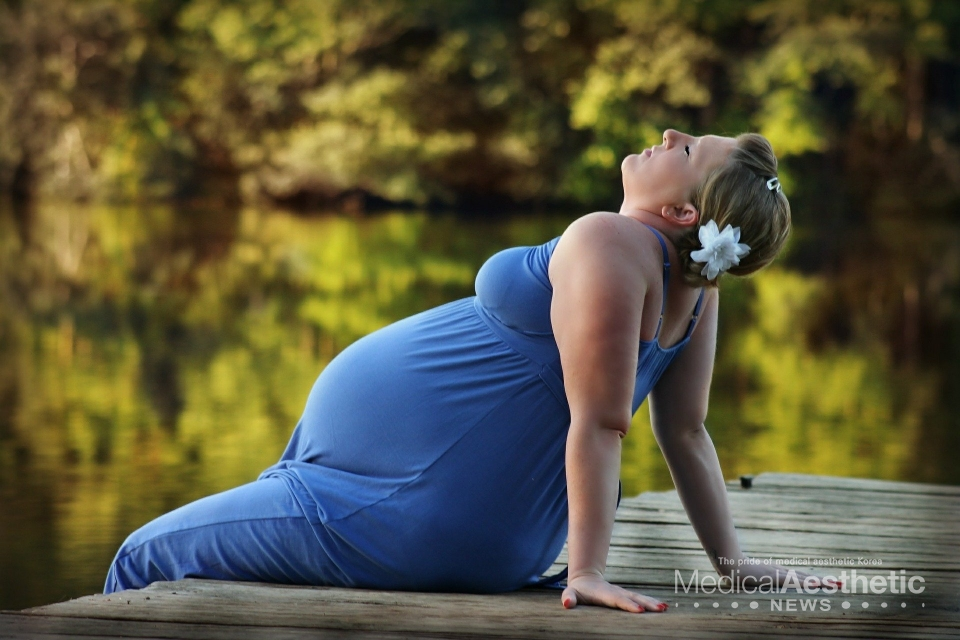Weight monitoring during pregnancy and weight normalization management after childbirth are important.
Pregnancy and childbirth are precious times to conceive a new life and become a mother of a child, but they are also times that cause many physical changes in a woman’s body. It is sad to see the body swell and gain weight due to rapid hormonal changes, but there is also a myth that ‘if you don’t lose weight within 6 months after childbirth, you will not lose weight’, it is bound to cause concern.

It is natural to gain weight during pregnancy. The weight increase by more than 10kgs, that includes fetus, placenta, and amniotic fluid. The weight gained during pregnancy is reduced by an average of 4.5 to 6 kg due to the loss of the fetus, placenta, amniotic fluid, bleeding, etc. during childbirth. It is known that the weight returns to the pre-pregnancy weight by 6 months of delivery due to swelling or additional weight loss for several weeks after childbirth.
However, according to Dr. Hosun Chang, founder and president of Medi Castle Clinic, it is known that less than one-third of women maintain their pre-pregnancy weight after childbirth. If you do not lose weight for 6 months due to reduced activity, stress, and hormonal changes, etc. during pregnancy and childbirth, it is difficult to return to the pre-pregnancy weight.
Postpartum obesity is defined if the weight has not been lost even after 6 months after childbirth and the weight has increased compared to before. It is ideal to fully return to the pre-pregnancy weight 6 months after childbirth, but in general, about 2 to 4 kg of weight remains compared to the pre-pregnancy weight. In this case, it can be considered as postpartum obesity, which fails to normalize the weight after childbirth.
If you gain weight during your first pregnancy, you are more likely to gain weight in subsequent pregnancies. The shorter the period between menarche and first trimester, the higher the likelihood of an increase in the frequency of postpartum obesity. If the degree of weight gain during pregnancy is too high, not only can postpartum obesity occur, but also the risk of various complications for the mother and the fetus increases.
Dr. Chang said, “Early complications of pregnancy include spontaneous abortion and relapse of miscarriage, neural tub defects, spina bifida, congenital heart anomalies, congenital anomalies such as congenital abdominal wall hernia. Late complications of pregnancy such as pregnancy poisoning, gestational hypertension, gestational diabetes, premature birth, intrauterine fetal death, etc. The cesarean section has risk more than doubles, such as the risk of anesthesia, excessive bleeding, delayed wound healing and postpartum fever (A disease that causes high fever due to bacterial infection through wounds on the genitals caused by childbirth) also increases. In the case of fetuses, it is known that there is an increased risk of megaloblastic births and childhood obesity.”

Therefore, preventive preparation is necessary when you plan pregnancy and childbirth. During pregnancy, you need to monitor and control your weight, and after childbirth, set up a weight normalization plan within a month and a half to three months when the body normalizes for preventing postpartum obesity.
Before pregnancy, you should set an appropriate weight gain goal during pregnancy according to your body mass index (BMI, less than 18.5 for underweight, 18.5 to 22.9 for normal weight, 23 to 24.9 for overweight, etc.). A weight gain of 13 to 15kg for underweight, 10 to 1kg for normal weight, and 6 to 8 kg for overweight is considered appropriate.
In order to return the weight gained after childbirth, it is helpful to actively manage the diet during the postpartum period (the period when the mother recovers normally after childbirth). Since the immune system is weakened, it is easy to expose by various diseases, so proceed with health care. Dr. Jang added, “I think the weight control is the most important period during the postpartum period until 6 weeks after childbirth.
It is known that about 500~700Kcal consumption occurs when breastfeeding. If you are breastfeeding, an appropriate nutrition supply and calorie consumption strategy can help you lose weight rather than eating less. Care should be taken not to consume excessively high-calorie nourishing food for body health, and monosaccharides and carbohydrates that are easily converted to fat It is important to provide enough nutrients for breastfeeding.

The increased fat on the thighs, pelvis and abdomen during pregnancy does not fallout after childbirth and can cause changes in body shape, so exercise is also required.
Dr. Chang said,” In early postpartum period, if you start exercising with light stretching and bare-handed gymnastics, it stimulates muscle blood flow, reduces pain, and improves swelling. If you have been exercising regularly during pregnancy, it will not be difficult to resume exercise. In early days after childbirth, it is recommended to walk slowly so as not to overdo it, and after 6 weeks after childbirth, it is recommended to walk lightly for 20 to 30 minutes a day. After 3 months after childbirth, you can try a full-fledged diet by gradually increasing the amount of exercise, intensity and time.”


